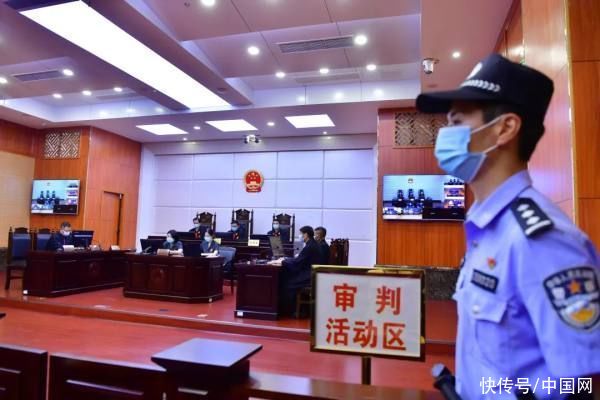On the morning of July 19, 2022, the case of Fujian “Zhanggong Patriarch” who received much attention at home and abroad in the case of cross-border pursuit of Buddha sitting in the flesh had a final judgment.

On the morning of the same day, the Fujian Provincial Higher People’s Court filed a legal case against appellant Oscar Van Overeem (transliteration: Oscar Van Overeem, hereinafter referred to as “Oscar Van Overeem”). ”) and the appellees, Yangchun Village Committee of Wushan Township, Datian County, Fujian Province, Dongpu Villagers Committee of Wushan Township, Datian County, Design & Consultancy B.V. (Transliteration: Design & Consulting Private Co., Ltd.), Design & Consultancy Oscarvan Overeem B.V. : Design Consultant Oscar Van Overem Private Co., Ltd.) The first instance of the second instance of the property rights protection dispute was publicly pronounced, and the judgment of the first instance of the Sanming Intermediate People’s Court that Oscar should return the “Zhanggong Patriarch” flesh Buddha statue was upheld.

After trial, the court of second instance found out that the “Zhanggong Zushi Buddha Statue” in which the eminent monk “Zhanggong Zushi” was seated in the Song Dynasty was originally enshrined in Sanming, Fujian Province. Puzhaotang, Yangchun Village, Wushan Township, Datian County, Datian County. On December 14, 1995, the Buddha statue was stolen. Oscar claimed that he bought and obtained the Buddha statue involved in the case in Amsterdam, the Netherlands, in 1996, but did not provide the corresponding transaction certificate of the source of the Buddha statue. In March 2015, almost 20 years after it was stolen, the Buddha statue was put on public display at the Hungarian Museum of Natural Sciences with permission from Oscar.
The court of second instance held that the “Zhanggong Patriarch” in question was a stolen cultural relic that was illegally exported, and had multiple attributes such as human remains, historical relics, and worship objects, reflecting the traditional customs and history of the southern Fujian region of China. The imprint is a token of worship that the local villagers have worshipped for a long time. There is a special relationship with the local villagers, and it should be returned according to the law and reason. Therefore, the above judgment is made.
Agents of all parties appear in court to participate in the sentencing. Some deputies to the National People’s Congress, members of the Chinese People’s Political Consultative Conference, media reporters and village representatives attended the sentencing.
Lin Kai’an, deputy secretary of the Party branch of Yangchun Village, who attended the sentencing in court, expressed his gratitude to the court for its fair judgment on the case. “After so many years of recourse, I have an explanation for the villagers when I go back. I hope ‘Zhanggong Patriarch’ can return to Puzhaotang as soon as possible.”
Link to the case
It is understood that, The common name of “Zhanggong Patriarch” is Zhang Qisan, and the Dharma name is Puzhao. After he passed away during the Northern Song Dynasty, he was made into a golden Buddha statue and enshrined in the Puzhao Hall jointly owned by Yangchun Village and Dongpu Village, Wushan Township, Datian County. Because of his real body, limbs and head, he is also known as “Zhanggong Liuquan Patriarch”.
In December 1995, the “Zhanggong Patriarch” sitting Buddha in the flesh was found by local villagers to have been stolen. The villagers reported the case to the public security organs, but the whereabouts of the sitting Buddha remained unknown.
In March 2015, the Hungarian Museum of Natural Science exhibited a Buddha statue in the flesh, which attracted the attention of Yangchun Village and Dongpu Village. The villagers believed that the Buddha statue was the stolen “Zhanggong Patriarch” sitting Buddha in the flesh. The Fujian Provincial Department of Cultural Relics also stated that it had initially confirmed that the “Seated Buddha in the flesh” was the statue of “Zhanggong Patriarch” that was stolen 20 years ago, and the Dutch collector of the Buddha, Van Overem, immediately removed it from the exhibition.
In November 2015, the village committees of Yangchun and Dongpu villages, on behalf of all the villagers, authorized a team of Chinese and Dutch lawyers to carry out a recourse lawsuit against the “Zhanggong Patriarch” sitting Buddha in the flesh, which was carried out in China and the Netherlands parallel litigation.
At the end of May 2016, the village committees of the two villages entrusted a Chinese-Dutch lawyer group to submit a complaint to the Dutch court, requesting the court to order the Dutch collector Van Oworem to dispose of the body of the “Zhanggong Patriarch” he held. The sitting Buddha statue is returned to Puzhaotang. On July 14, 2017, the Amsterdam District Court in the Netherlands held its first hearing in the case. The plaintiff was represented by a group of attorneys entrusted by the Fujian villagers, and the defendant, Fan Overrim, attended the hearing together with the defense attorney. In accordance with Dutch legal procedures, the judge heard the prosecution and defense at the hearing and raised relevant issues, but did not make a ruling on the spot.
On the morning of July 26, 2018, the Sanming Intermediate People’s Court held a public hearing to hear the case of “Zhanggong Patriarch” sitting in the Buddha’s body, but the judgment was not pronounced in court. On December 4, 2020, the Sanming Intermediate People’s Court publicly pronounced the case, ordering the defendant Oscar van Overem to return the “chapter” involved in the case to the plaintiff Yangchun Village Committee and Dongpu Village Committee within 30 days from the date when the judgment took effect. Master Gongzu” is sitting on a Buddha statue in the flesh.
Author|Wang Ying, an all-media reporter for the Rule of Law Daily
Source|The Rule of Law Daily
Editor|Wang Fang, Ji Tianluoqi